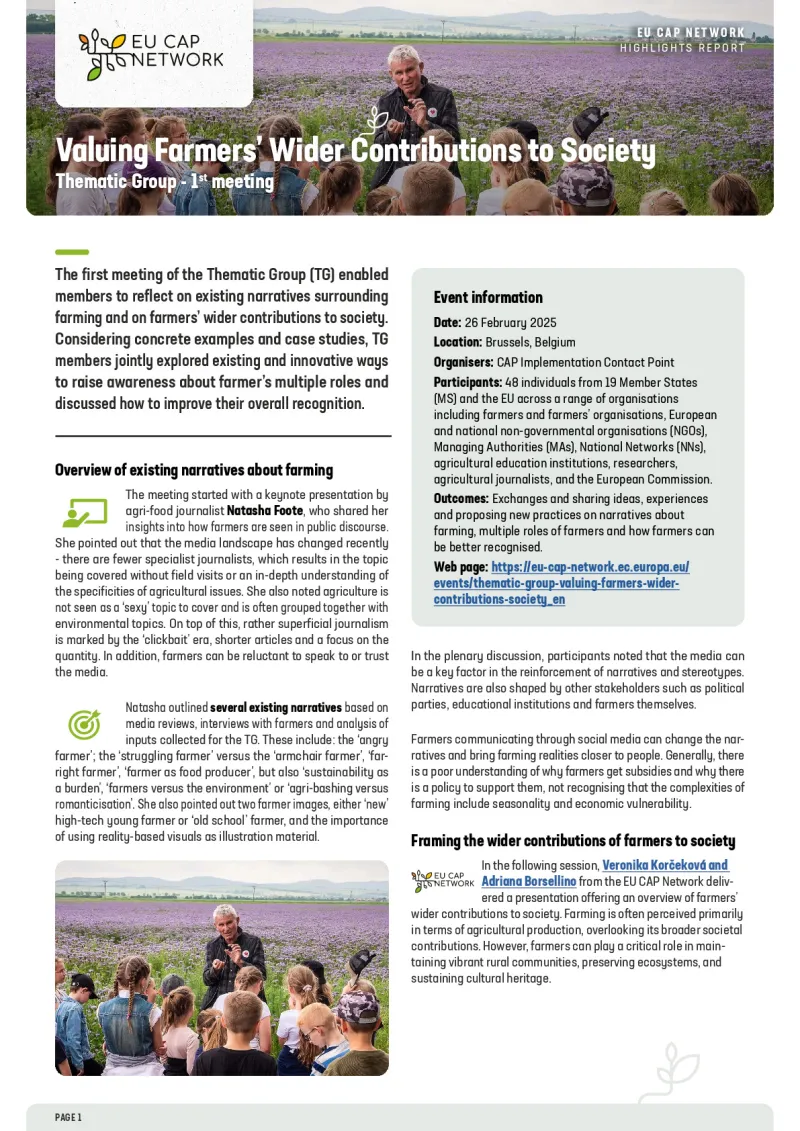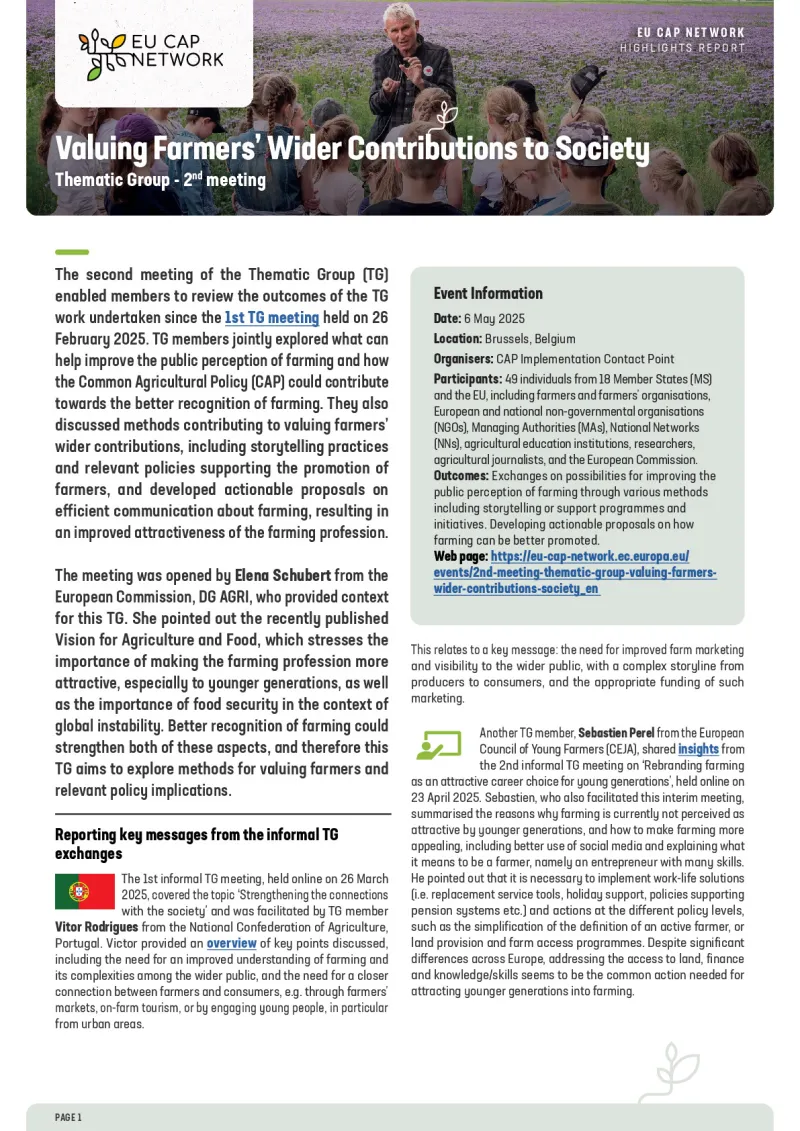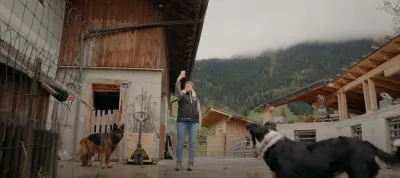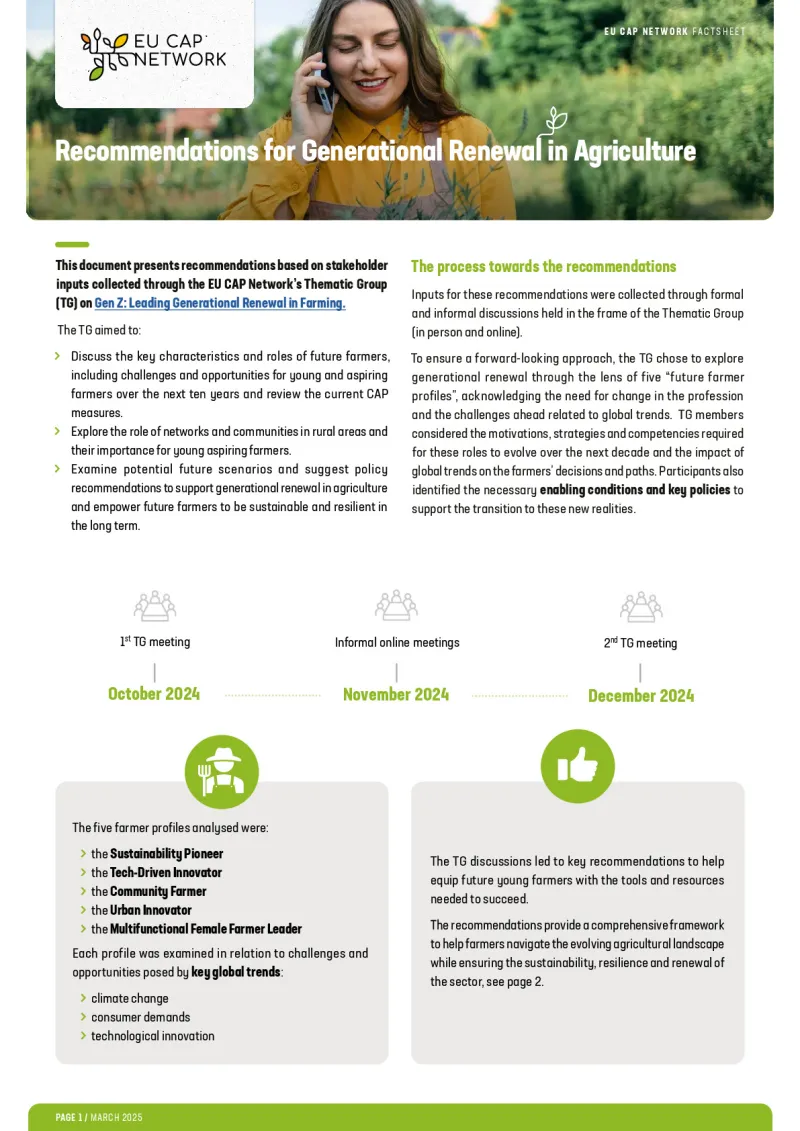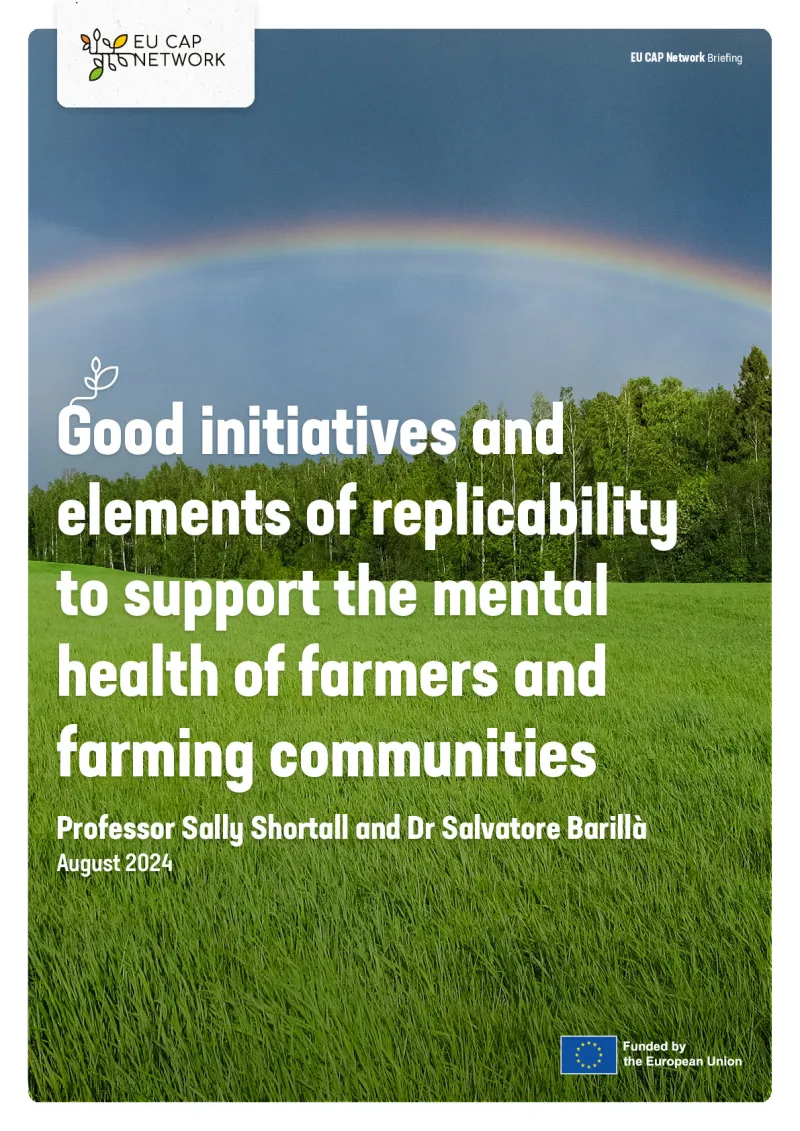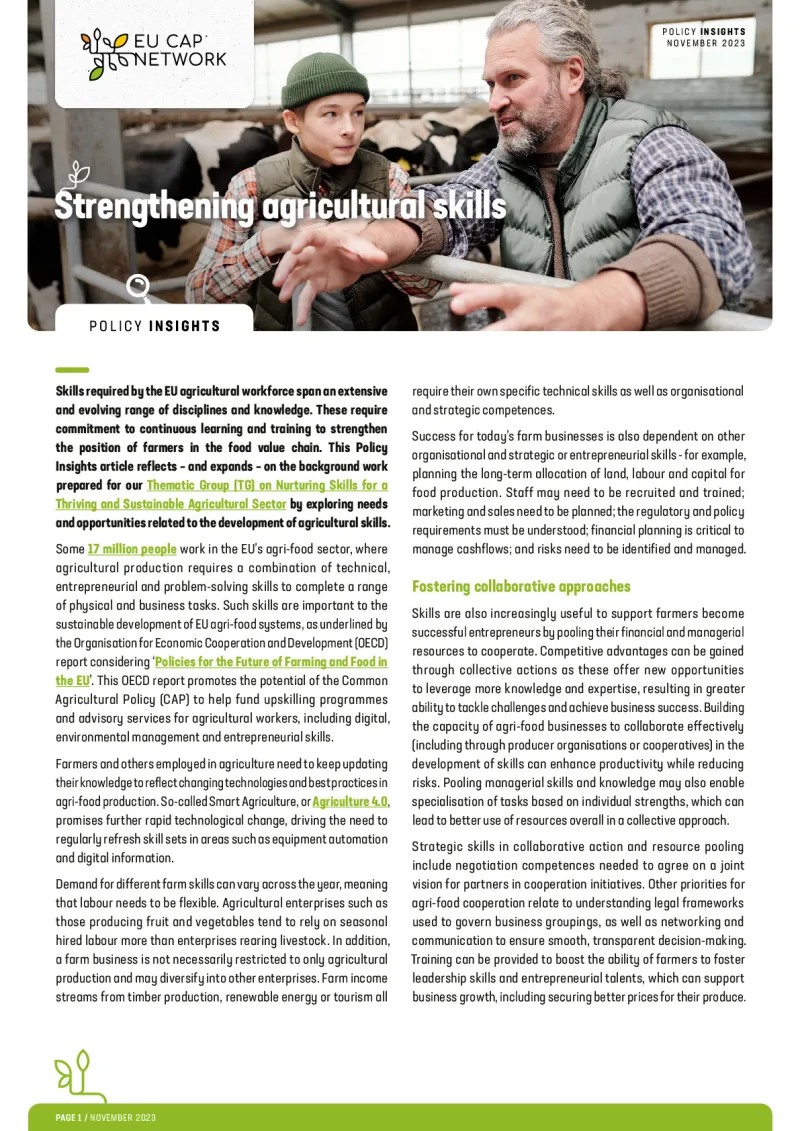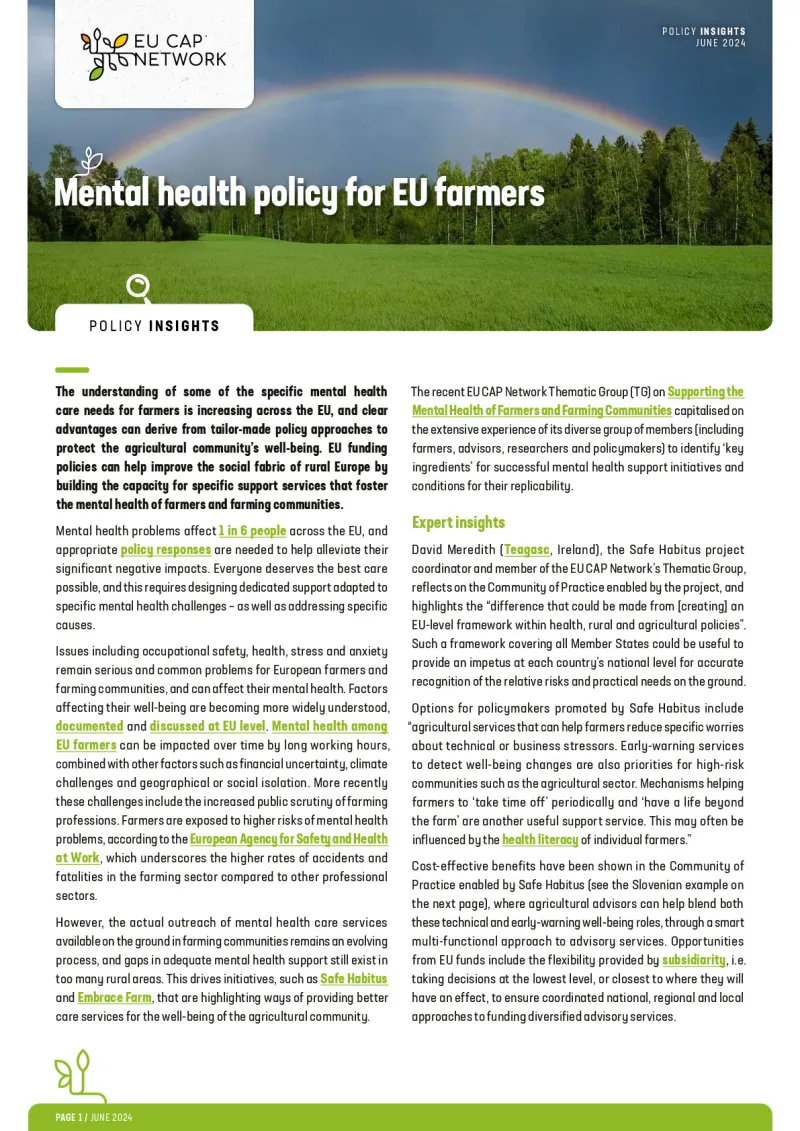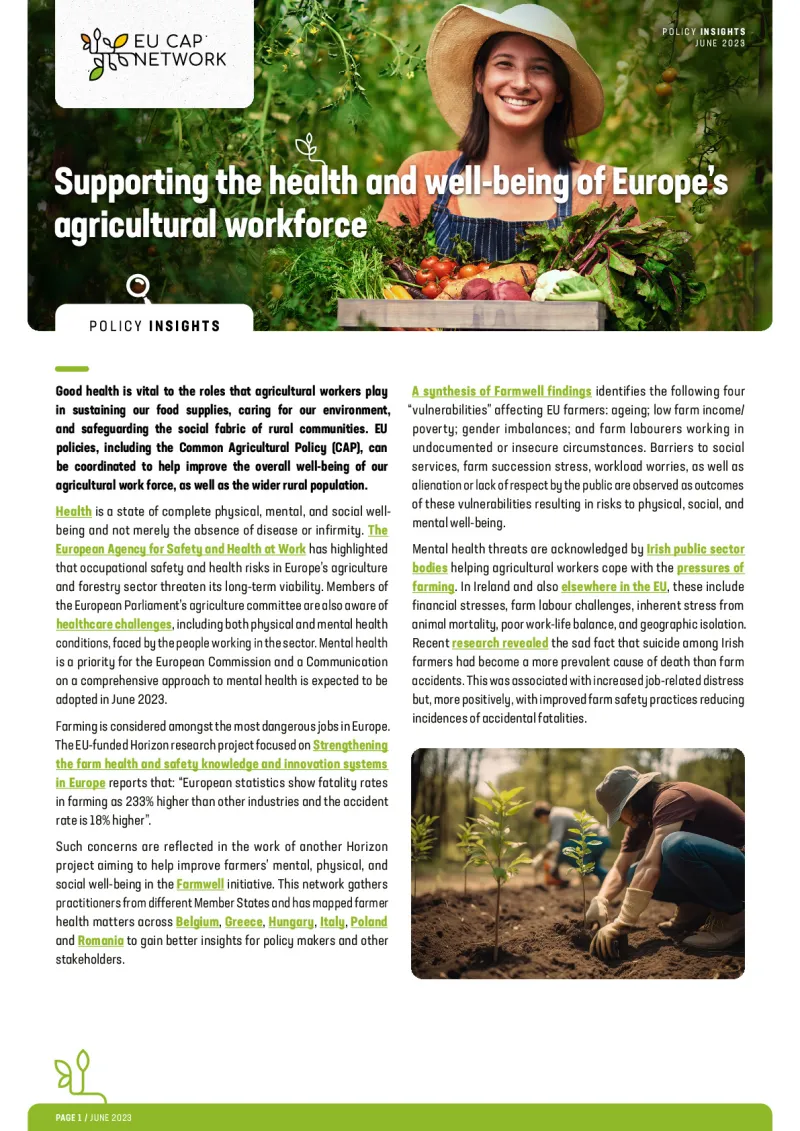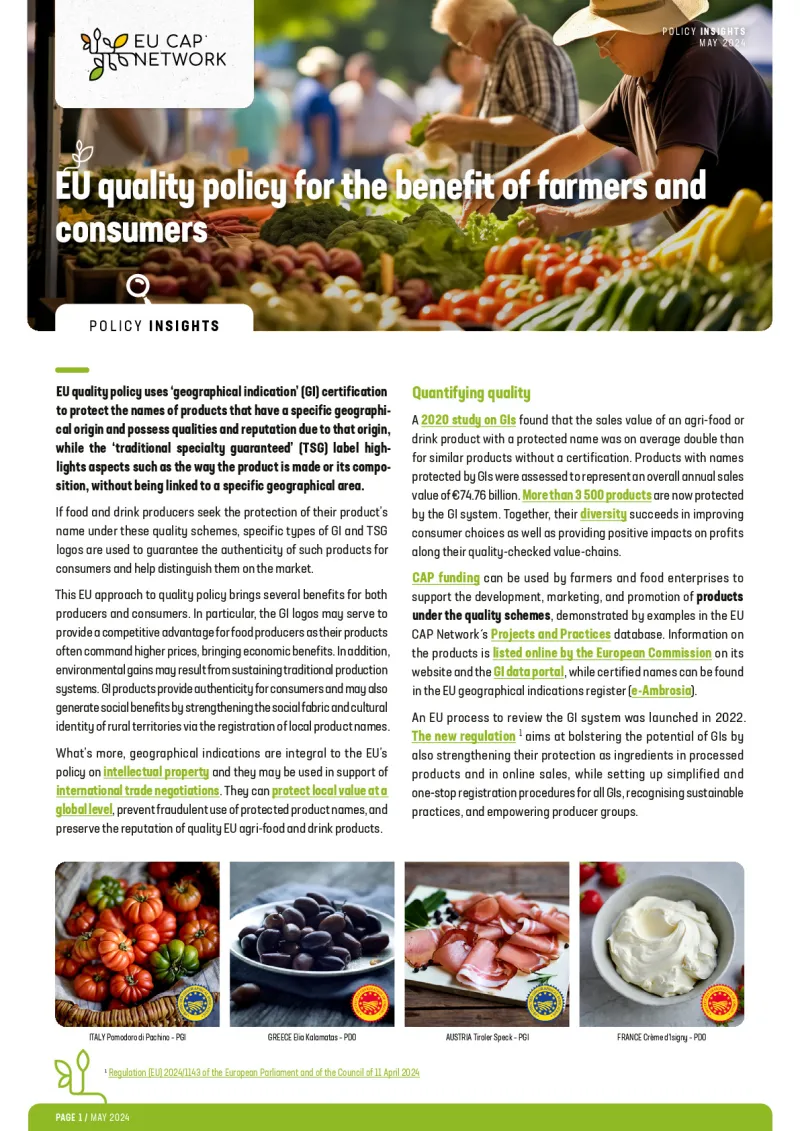Thematic Group on Valuing Farmers' Wider Contributions to Society
This Thematic Group (TG) reflected on the broader societal value produced by farmers, giving the opportunity to share insights, experiences, good practice examples, and innovative ideas on how to raise awareness about the multiple roles of farmers in rural communities.
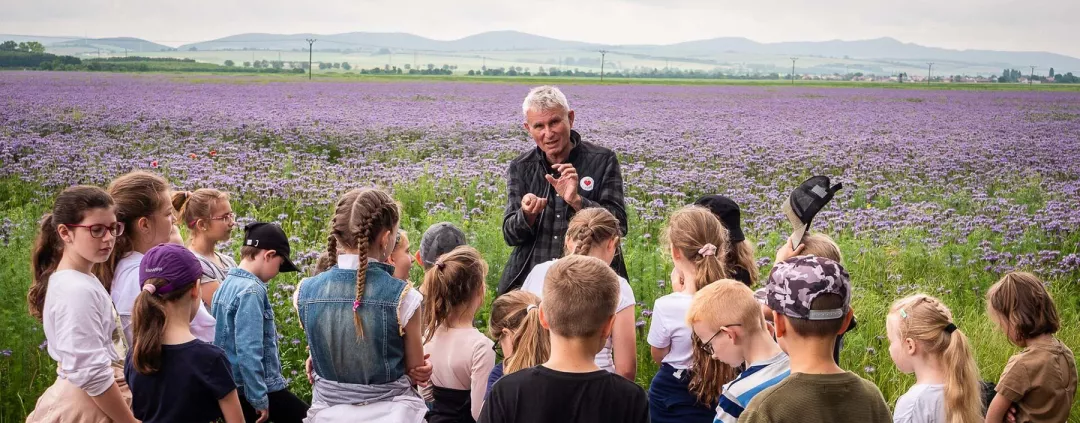
Context
Farmers play a crucial role in European society. Beyond their agricultural and food production role, farmers can provide healthy food for local markets and promote short food supply chains; they can also help maintain vibrant and thriving rural areas through community involvement, delivering valued public goods and environmental stewardship. However, these wider contributions to society are often not recognised or communicated clearly enough and farming is hardly perceived as an attractive career option.
This Thematic Group (TG) reflected on the broader societal value produced by farmers. After looking into the drivers of the existing narratives about farming, the TG discussions focused on farmers’ multiple roles in society and on ways to raise awareness about their value and importance, taking into account the possibilities of different stakeholders and the diversity of farming profiles and practices across Europe.
The discussion was enriched by the diversity of TG members (see below in this page), which included individual farmers, representatives of farmers’ umbrella organisations and cooperatives, National Networks, agricultural journalists, educational institutions and policymakers.
Objectives
- Examine the drivers of the existing narrative surrounding farming, particularly those leading to the negative image of farming and related misconceptions.
- Discuss the multiple roles of farmers and their wider contributions to society, considering concrete examples and case studies.
- Collect insights, experiences, good practice examples and innovative ideas from TG members on how the role of farmers is, and could be, recognised in their own country and/or Europe-wide.
- Explore existing and innovative ways to raise awareness and recognise the wider societal contributions of farmers, as well as how to attach greater importance to the profile of the farming profession and attract new people into farming.
Activities
At the first TG meeting (Brussels, 26 February 2025) TG members reflected on existing narratives surrounding farming and on farmers’ wider contributions to society, sharing concrete examples and case studies and exploring existing and potential initiatives to improve awareness and recognition of farmers’ roles. The discussion continued at the second TG meeting (Brussels, 6 May 2025), where TG members looked at how the Common Agricultural Policy (CAP) could contribute to improving the recognition of farming and developed actionable proposals for promoting farming more effectively.
Two informal, member-led online sessions focused on strengthening the connections with the society and on rebranding farming as an attractive carrier choice for young generations. All the discussions fed into the final Collection of good practice examples that is available below at the Publications section.
The outcomes of the TG meetings are highlighted in the event reports available below.
Key findings
- Both society and farmers themselves should acknowledge and promote the diverse range of farmers’ societal contributions, including as food providers, environmental stewards and community builders/rural keepers. Relevant policies, including the Common Agricultural Policy (CAP), should be backed up by appropriate funding mechanisms to financially value such a broad range of contributions, often provided on a voluntary basis.
- Recognising the diversity among farmers is crucial. Factors such as farm size, agricultural practices and local or cultural context all shape farmers’ roles and challenges. Therefore, it is essential to move beyond a one-size-fits-all perception of farming.
- Media can be a key factor in the reinforcement of narratives and stereotypes. Organising capacity-building training for journalists on technical agri-food issues is a very useful way to avoid misinterpretation. Narratives are also shaped by other stakeholders such as political parties, educational institutions and farmers themselves. Good communication can help 'cultivate connections'.
- Farmers communicating through social media can change the narratives and bring farming realities closer to people. Generally, there is a poor understanding of why farmers get subsidies and why there is a policy to support them, not recognising the complexities of farming including seasonality and economic vulnerability. Even if farmers’ organisations are learning to communicate better with public, especially after recent protests, there is still a big scope for explaining why farmers are subsidised.
- Innovation in farming extends beyond digital technology and includes sustainable, biological, technical, marketing and community building practices. Recognising farmers as skilled professionals who continuously evolve and embrace new methods is key to reshaping public perception.
- Farm marketing and capacity building on how to communicate with the public should be given financial support from public funds, including the CAP.
- A holistic strategy aimed at making farming more attractive, particularly for young people, is needed. This could include:
- improved social security for farmers, including relief services and support for work-life balance;
- fewer barriers to becoming a farmer. Individuals with necessary skill sets and motivation could access agricultural land and participate in farming-related initiatives more easily;
- positive communication about farming. Farming would be recognised as a valuable profession and viable career path;
- integration into education. Agri-food topics would become part of the compulsory education curriculum at primary and secondary school.
Scroll down this page to find all the outputs of this Thematic Group and relevant resources related to this topic, including context paper and the collection of good practice examples.
Learn more
You can find other useful resources about this theme in our Publications section and in our Good Practice database.
If you have any questions or suggestions, please contact us at implementation@eucapnetwork.eu.
If you want to be informed when new content is available on this or related topics, subscribe to the EU CAP Network newsletter.


